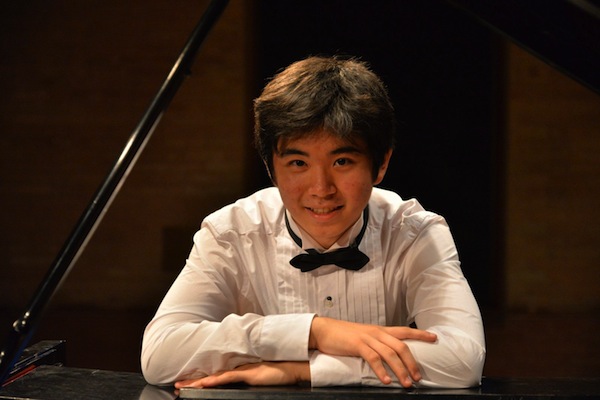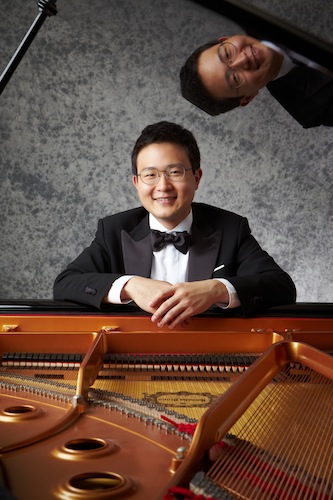Cliburn Semifinal: Round 4

Tony Yike Yang
At 18, Canadian Tony Yike Yang has his own ideas about the music he plays—sometimes quite different from those of the composer, at least as represented in the score.
Granted, Scarlatti’s Sonata in A (K. 212) is marked Allegro molto, so the madcap race through this gem of the baroque era was justified, as was the slightly less frantic reading of the Sonata in D minor (K.9), marked Allegro. The very generous rubato Yang applied likewise has some historical and artistic justification, and, though the outlandishly wide dynamic range he applied is many multiples beyond the capabilities of Scarlatti’s harpsichord, he was, after all, playing on a modern concert grand.
The problem with Yang’s approach was not so much in historical justification or even in ability to engage. (Yang clearly held the audience throughout his program Saturday afternoon.) The problem was more in the jolting changes of mood and tone, not only in the Scarlatti, but in Chopin’s Sonata No. 2. In the Chopin, Yang was even guilty of some rewriting. Exciting, yes, but not always artistically effective, in spite of some fine moments.
Yang’s one unmitigated success arrived with his final work, Mussorgsky’s Pictures at an Exhibition, which he delivered smoothly and with the correct pacing to pull off those grand final moments.

Yekwon Sunwoo
While his predecessor on the afternoon’s agenda had played fast and loose with composer intent, South Korean Yekwon Sunwoo, 28, made a beautiful journey through three very different works, showing off impressive stylistic insight in every measure. His reading of Beethoven’s potentially thorny Sonata No. 30 in C, Opus 109, emerged with all the warmth, energy, and humanity of that masterpiece.
On the other side of his program, Sunwoo explored Prokofiev’s stormy (and occasionally heart-wrenching) Piano Sonata No. 6. The technical demands here seemed almost inconsequential to Sunwoo (one aspect of which was his easy span of a tenth). The challenges here are not, of course, just technical: Sunwoo knows how to engage through the quieter moments of this spiritual essay written in the darkest days of Soviet Stalinism, from the cannonade of the opening passage to the final, exuberant reiteration of all the major themes.
In a stroke of programming genius, Sunwoo sandwiched, between Beethoven and Prokofiev, Percy Grainger’s delightfully syrupy “Ramble” on the Duet from Richard Strauss’s Der Rosenkavalier. Packed with schmaltz, and, in the context of the competition, opportunities to show off glittering scales and passagework, this bonbon provided more evidence of a pianist with the possibility of a major presence on the world stage.